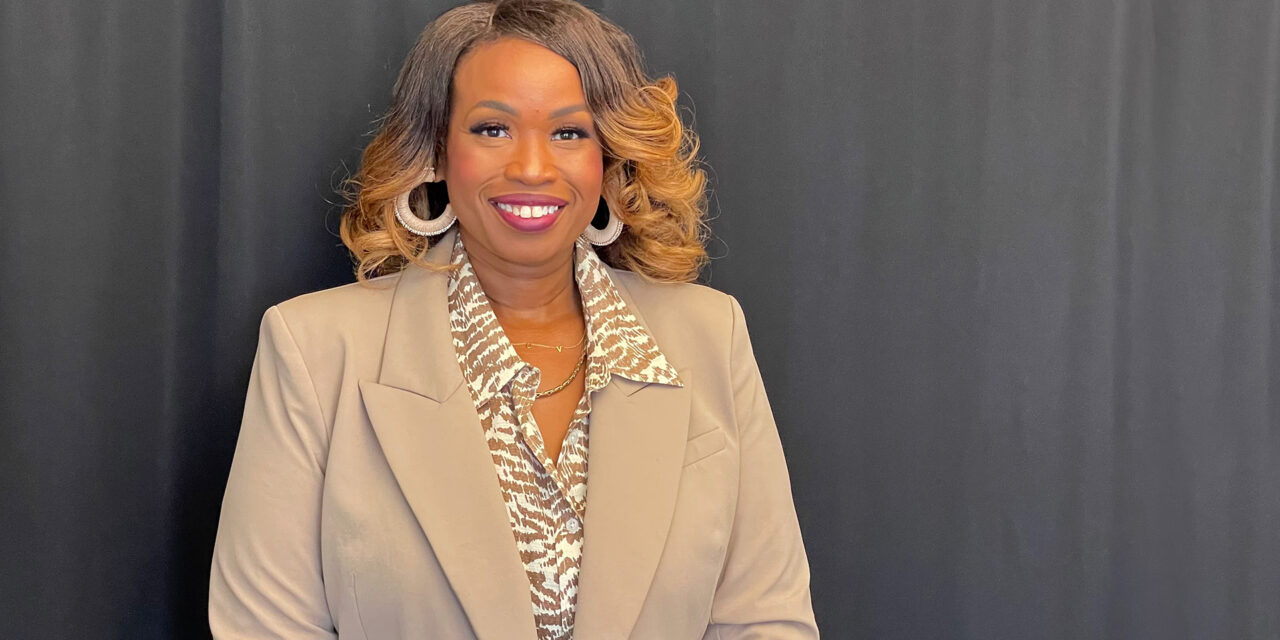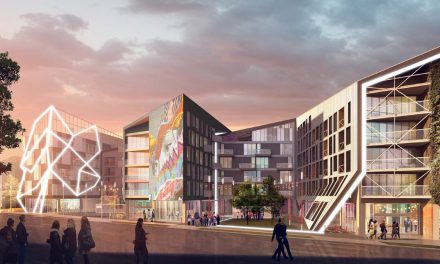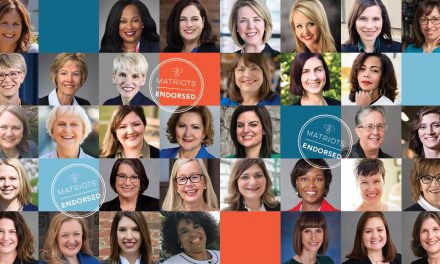Podcast: Play in new window | Download
Subscribe: RSS
Tim Fulton 00:08
Ladies and gentlemen, welcome to the confluence cast presented by Columbus underground. We are a weekly Columbus centric podcast focusing on the civics, lifestyle, entertainment, and people of our city. I’m your host Tim Fulton. This week. In anticipation of this fall’s election, the confluence cast is endeavoring to introduce Columbus voters to the 12 Council and two mayoral candidates in their own words. Under the new city council district system, district seven encompasses downtown the Short North German village, Old Town East Franklinton fifth by Northwest and everything in between. Incumbent city council member Shayla Favre is running for re election within this district unopposed. In today’s interview favorite talks about equity, housing policy, and how her background applies to council policy work. You can get more information on what we’ve discussed today in the show notes for this episode at the confluence cass.com. Enjoy the interview sitting down here with Shayla Favor Columbus city council person and candidate for district seven. Shayla, how are you? I’m doing good. Thank you for asking. How are you? I’m well thank you for asking. First of all, tell us about yourself What brings you to your candidacy and council?
Shayla Favor 01:30
Well, first, let me just say thank you for even providing the opportunity for me to introduce myself to your audience. My name is Shayla Favre, I’m born and for the most part raised in Dayton, Ohio, I’ve lived all over the place, moved to Columbus to go to the Ohio State University. I’m a lawyer by training, I am a Creative At Heart. And I’m a fighter. Okay. How did you get to counsel in the first place, I got to counsel it’s a bit of a it’s a journey. And I live by this model, live for the journey, not the destination. And so I don’t know if we’ve got time to go through the whole journey. But I look back over every encounter that I’ve had, it has all been leading up to this point that I’m at right now. Practically, I served as an assistant city attorney in the Columbus city attorney’s office, working to clean up Columbus Neighborhoods that really helped to zero in on this love and passion around advocating for a safe and affordable housing in our community. And so when an opportunity presented itself, I threw my name in the hat. didn’t think much of it. And here we are four ish years later, taking that experience, that expertise, that passion, and helping to hopefully bring positive impact in our community all throughout Central Ohio.
Tim Fulton 03:02
Talk us through the issues that you believe Columbus is currently facing, and how you as a council person, try to address those challenges.
Shayla Favor 03:11
You know, without a shadow of a doubt, if anyone is familiar with my name, my platform, you’re going to hear me talk about housing, you’re gonna hear me talk about our issues around evictions and our growing homelessness crisis in our community. You know, when I think about the way we have a Congress is good fortune and its growth, right? And it’s going to continue to grow with projects, big projects, like intel on the horizon. I am, what keeps me up at night is to think about how we are going to grow equitably, and our community, you know, 2023 and we’re still talking about Columbus being one of the most segregated communities in this country. It’s a sin and a shame. And while the pandemic taught us so many different types of lessons, this is one that I welcome because now we’re having some of those candid, sometimes confrontational, uncomfortable conversations about what disparity looks like in our community, what it looks like to really unpack there being too Columbus’s, and the reality that there are many people in our community that don’t have access to safe and affordable housing, that don’t have a place to lay their head down at night. And we’re not just talking about a siloed issue of housing, because quite honestly, we’re talking about systemic impacts as it relates to housing I talk about a lot I talk a lot scuze me about systemic racism and what that means. And so let me just unpack that if you don’t mind. If you think about the realities of housing, in our community and the history of housing, I had the opportunity two years ago Oh to teach a course at Denison University and created the class, they said, Do what you will and, and I taught a class about the history of housing. And I entitled the class, the course, ghetto by design, racism and inequity in urban communities. I think as a way of truly educating young folks, and now people in our community, about how our communities came to be that it is not just as simple as unpacking redlining and we’re having a large zoning conversation in our community. Yeah, but it is so much more than that, that when we talk about how people that look like me and others, were essentially locked out of the opportunity to not up to only obtain housing, but to also have the, the opportunity to partake in what is now what we know as generational wealth, right. And so what that means is that people that look like me, did not only have the opportunity to obtain in house, at some point in time, but all those things that came along with that. So that’s access to a better educational opportunities, versus someone who has to take out loans to be able to obtain higher education, let’s talk about the opportunity to pursue entrepreneurial efforts, with a free flowing cash that is available or using the wealth that might derive from a generational access to housing, versus someone taking out loans or credit or being able having to float, a small entrepreneurial effort on the good fortune of people just making some cash donations, all of these things are what we can unpack as systemic effects of racist housing policies in our community. Now that you can talk about other things that could be added into that. But what we know for sure, is that if you don’t have to worry about taking out a loan, to take care of medical expenses, to take care of your child going to school, or a whole other host of issues, improving your home, those efforts could be used, those monies can be used in other ways to enhance and better your life, thereby just increasing what we know is generational wealth. And so it is time for us to truly unpack what that means and how people have been disenfranchised over the years, how they have not had the opportunity to really partake, and certain certain opportunities, right, the American dream, if you will. And I want to disrupt that. I want to call that out. I wanted to talk about what it is, and and make some folks uncomfortable around this conversation, because it’s through that uncomfortability that we can grow and become the Columbus that I think that we all want to be. I see a question.
Tim Fulton 08:02
So it in addition to the awareness and the conversations that I personally believe are important, what is the role of counsel in addressing some of these, as you’ve said, systemic things that exists? Well,
Shayla Favor 08:22
we didn’t get here without local state and federal government interfering in this market, right? Well, think about how our communities were created. subsidies were in place. Yep. White people were subsidized and able to get housing and opportunities by lots of different measures. Think of even the GI Bill.
Tim Fulton 08:43
Right. It was literally about to bring your GI Bill. Right, right, right. And so
Shayla Favor 08:47
when we think about other racist policies, like covenants that were keeping people that literally said, if you were a black person, you could not live. And this you could not own this home. Yes, in the deeds, right, that literally says that.
Tim Fulton 09:02
And just for the listeners, I invite you to go back to the episode on Upper Arlington to talk where we talk about that and where there is it. The folks in power are trying to have conversations about being open and welcoming communities, but it’s difficult when it’s inherent to how these communities were founded.
Shayla Favor 09:25
Absolutely. Absolutely. And, you know, and then what, you know, what everyone knows about, hopefully, is this, you know, what redlining did into our community. And you really can’t we talk a lot about redlining. We don’t talk about those green line communities, though, and how the blind communities have flourished all over the country. And so if government at the state, excuse me at the local, state and federal level, played a role and helping to segregate communities, and for all intents and purposes, block people from being able to obtain generational wealth, then I think that government also has a role in creating opportunities to write that wrong. And so I see City Council playing a role in that. Number one, we’re we’re undertaking a huge zoning, zoning code update. Zoning impacts so much in our community, it is what helps to, it’s the map of how our community our city will grow, and how our city will develop. It is the determination whether you’re going to live next to a trash receptacle site, or you’re going to live next to a beautiful park. Where do most communities of color unfortunately, find themselves at their abutted against highways, they’re next to these trash receptacle sites. And those bring on a host of environmental concerns, which lead to health concerns, which means that if you’re going to have a disproportionate impact as it relates to your health, then more than likely, that’s going to also impact your ability to go to school, right. So we see kids of color with higher incidence of asthma and other health related issues, all of that can be related to the fact that the environment that you live in, may not be the best for you. Which also means if you’re not going to school on a regular basis, or you’re out because you’re sick at a disproportionate rate, you’re probably not going to graduate high school on time. And if you do graduate high school on time, maybe you don’t get the good grades that you probably could have had if you didn’t have those other issues. So you know what you might not get into that four year college that you had aspirations for, or you might not get that job that all of these things, it’s a cycle. And so that’s what I mean, when I’m talking about unpacking the systemic issues that it relates to us, we might think just Oh, housing, it’s just this, let’s throw some money at it. And that’s going to solve the problem. It’s not complex is out excuse me, housing is a complex issue. Yeah. And it’s going to take complex strategies to truly address our housing crisis. And so there is not a silver bullet for listeners out there, we are going to continue to roll out idea after idea, we’re going to try different things. And hopefully something sticks, I know that something is going to stick. And that will begin to to address truly the cycle that we are currently facing right now, which around our housing crisis. But there isn’t one thing that’s going to solve this because it is that complex.
Tim Fulton 12:25
And we’ve had a conversation with Aaron Prosser in the past. I want to after the election, have another conversation with you about sort of the equitable solutions that you see from a council perspective. And there’s a whole host of things we can get into there, right. Let’s pivot a bit. Tell me about how you feel about the new districting system. And whether it’s good and whether this is the next step in a reasonable direction.
Shayla Favor 12:58
So I will be representing district seven. And
Tim Fulton 13:04
we should note your unopposed WE ARE WE I so I post I am feeling a little bit more free to have a conversation about this. Sure. All the interviews I’ve done up to this point have been I’ve been very conscious about I want to treat everybody equitably. Right, which sorry, I want to treat everybody equally. Given that you’re on unopposed I want and that you currently sit on council. Let’s talk about it.
Shayla Favor 13:32
Okay. Yeah, yeah. You know, I say you say I am unopposed. But I believe that I do have opposition. And I do believe that is because some of the ideals that I am discussing when we talk about our housing and evictions. And those aren’t things that we have talked about, to the level that we are talking about them right now. It these conversations tend to make people uncomfortable. And so that is opposition, right? To some degree, I have to have buy in, I got to have buy in from my colleagues, I’ve got to have buy in from the community. I’ve got to have buy in from those who are helping to develop these projects that we’re talking about. And so for yes, for all intents and purposes, I don’t have another candidate that I’m going toe to toe with. But I am going toe to toe with ideas that I hope we’re going to disrupt the system that’s currently in place right now. A so that we can create the Columbus that I believe we all want to live in
Tim Fulton 14:36
talk about whether having a districting system where everyone is running at large, whether that’s good and whether that provides the amount of accountability to those individuals. Whether there’s enough there, right.
Shayla Favor 14:54
Yeah. Well, this is voter approved. Right. This is what the voters said that they wanted. Yeah. So I don’t think it’s up to me to say whether it’s good or not, we don’t know what is going to happen in January, right, except for the fact that there will be nine members on the Dyess versus seven. And I think that’s okay for, for us to say or for me to say that we don’t know what the end result is going to be, right. But what you do know is that you’ve got an A, a member who believes in what the voters cast their vote for, it’s willing to work in the system that is has been created, and will represent not only the residents in district seven, but the residents in the city of Columbus. And so we are not familiar, I think, more broadly, folks are more familiar with a traditional Ward based district based model, like a Chicago type of system, right? This is going to be different. Yeah, this is going to be different. And so part of this is educating folks on what this looks like what has happened over the last, this was came up in 2018 2019, for a vote. And we’ve been talking about this since I’ve been on council through a commission that was put together to figure out how this was actually going to be structured. And now it’s here. And so here we are being making Columbus history again. And so we’re the guinea pigs. We’ll see, we’ll see how this all plays out.
Tim Fulton 16:33
My last question, I almost feel like you’ve addressed a lot of it, what’s your value proposition that you’re bringing to your candidacy? Translating that? Why should folks vote for you?
Shayla Favor 16:43
Yeah, I mean, you’re getting a fighter here, you’re getting a fighter, you’re getting someone who doesn’t take know very well, who is creative, and who’s always looking for other solutions, who never wants to be put in a box, to say, this is how we’ve always done it. And this is what we’re going to continue to do. Because that is insanity. That if we truly want to be different than we’ve got to do different things, we can’t keep leaning on the same thing. We can’t keep saying the same thing and expecting different results. I think Columbus residents want something different. And so we’re going to give them something different. I’m going to give them something different.
Tim Fulton 17:21
I end every interview with two questions. What do you think Columbus is doing? Well, and what do you think Columbus is not doing? So well.
Shayla Favor 17:30
I think that Columbus, right now is stepping up and being a leader. And I say that with the understanding that you might not see the manifestation of that leadership right now. Columbus, without a shadow of a doubt is going to continue to grow. That also means that central Ohio is going to grow. And so the issues that we’re experiencing in Columbus, they’re not unique. So much so that our suburban partners are not going to experience them. But we are leading in the way of having the critical conversations around housing, around safety, around infrastructure, and not just leading in central Ohio, but leading for the state as well. And so you might not see all of the housing units that we need online right now. But we are creating the pathway that will help bring all of that housing online, that will bring the infrastructure that will bring the creative transportation, modes of transportation that we’ve been talking about for years online. So I think that’s what we’re doing very well. And, and to lead as you know, it’s not easy, you’re going to take the bullets along the way. But I think it’s incredibly important to acknowledge that conversation that we’re having, what could we be doing better? And we could just move faster. You know, and that’s just the realities of of government, though. I
Tim Fulton 19:13
realities of everything is, yes, it is.
Shayla Favor 19:19
But I am I am encouraged by the people that I serve with. I am encouraged at the capacity for people to come together and some of the toughest times that we’ve had to face in our community over the last three years or so, and kind of stack hands and say, you know, we’re going to own this. And we’re going to work collaboratively to address some of these critical issues. And so I don’t want to lose that momentum. I want to keep inviting folks to the stacking of hands, if you will, and be a part of the solution. Don’t sit on the sidelines, participate at whatever level you can to help create the Columbus that you can be proud of as well.
Tim Fulton 20:02
Great. Shayla, thank you for your time.
Shayla Favor 20:04
Thank you. This was great
Tim Fulton 20:17
thank you for listening to the confluence cast presented by Columbus underground. Again, you can get more information on what we discussed today in the show notes for this episode of The confluence cast.com. Please rate, subscribe, share this episode with Confluence casts with your friends, family contacts, enemies, your favorite attorney. If you’re interested in sponsoring conference cast get in touch with us. We can be reached by email at info at the confluence cast.com Our theme music was composed by Benji Robinson, our producers Phil Cogley, I’m your host, Tim Fulton. Have a great week.





